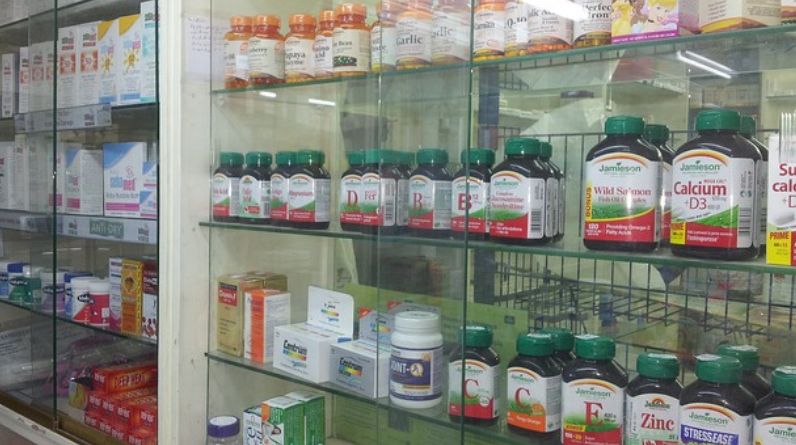
ENHANCING MUSCLE REPAIR AND PERFORMANCE
Introduction
After a strenuous workout, your body needs proper nourishment and recovery to repair muscles and enhance performance. While a balanced diet is essential, certain supplements can provide targeted support for muscle recovery, reduce inflammation, and replenishing essential nutrients. In this article, we will explore the best supplements for post-workout recovery, their benefits, and how they can aid in promoting faster muscle repair and improved athletic performance.
1. Protein Supplements
A crucial food for muscle growth and repair is protein. Consuming protein supplements after a workout can provide a quick and convenient way to deliver essential amino acids to your muscles. Whey protein, in particular, is highly effective due to its fast absorption rate, making it an excellent choice for post-workout recovery. Casein protein, which is slow-digesting, can also be consumed before bedtime to promote overnight muscle repair.
2. Branched-Chain Amino Acids (BCAAs)
Leucine, isoleucine, and valine are among the BCAAs, which are essential amino acids that are important for building muscle protein and minimizing muscle breakdown. Supplementing with BCAAs during or after exercise can aid in preserving muscle mass, especially during intense training sessions or when in a calorie deficit.
3. Creatine
Creatine is a well-researched supplement known for its ability to enhance strength and power during high-intensity workouts. It also promotes muscle recovery by replenishing adenosine triphosphate (ATP), the primary energy source for muscle contractions. Taking creatine post-workout can help optimize muscle recovery and improve exercise performance over time.
4. Glutamine
Glutamine is a conditionally essential amino acid that can become depleted during intense exercise. Supplementing with glutamine can support immune function, reduce muscle soreness, and enhance glycogen synthesis, all of which aid in post-workout recovery.
5. Beta-Alanine
The amino acid beta-alanine contributes to an increase in muscle carnosine levels. Carnosine acts as a buffer against the build-up of lactic acid during exercise, reducing muscle fatigue and delaying the onset of muscle soreness. Taking beta-alanine after workouts can help improve exercise performance and recovery.
6. Omega-3 Fatty Acids
Omega-3 fatty acids are anti-inflammatory nutrients that play a vital role in reducing exercise-induced muscle damage and inflammation. Supplementing with omega-3s after a workout can aid in reducing muscle soreness and optimizing recovery.
7. Magnesium
Magnesium is a mineral involved in muscle contraction and relaxation. It is essential for proper muscle function and plays a role in reducing muscle cramps and promoting muscle recovery. Consuming magnesium post-workout can help replenish depleted levels and support recovery.
8. Vitamin C
Vitamin C is a potent antioxidant that helps combat exercise-induced oxidative stress and inflammation. Supplementing with vitamin C after a workout can aid in reducing muscle damage and promoting faster recovery.
9. Electrolytes
Electrolytes such as sodium, potassium, calcium, and magnesium are essential for maintaining proper fluid balance and muscle function. After an intense workout, electrolytes can become depleted through sweat. Replenishing these electrolytes with supplements or electrolyte-rich beverages can aid in preventing dehydration and supporting post-workout recovery.
10. Collagen Peptides
Collagen is a protein that plays a crucial role in connective tissues, including tendons, ligaments, and cartilage. Supplementing with collagen peptides can support joint health and reduce the risk of injuries. Additionally, collagen can aid in muscle recovery by providing essential amino acids for muscle repair.
Post-workout period
Supplements for recovery after a workout can play a significant role in optimizing muscle repair, reducing inflammation, and supporting overall athletic performance. The post-workout period is a crucial time when the body needs proper nourishment and support to recover effectively from intense physical activity.
Protein supplements, such as whey and casein, deliver essential amino acids to muscles, promoting muscle repair and growth. Branched-chain amino acids (BCAAs) help preserve muscle mass and reduce muscle breakdown, especially during intense training or when in a calorie deficit. Creatine replenishes ATP stores, enhancing strength and power during high-intensity workouts and supporting post-exercise recovery.
Supplements like glutamine, beta-alanine, and omega-3 fatty acids aid in reducing muscle soreness, supporting immune function, and combating exercise-induced inflammation. Magnesium and vitamin C contribute to muscle function and combat exercise-induced oxidative stress, respectively.
Collagen peptides support joint health and muscle repair, making them valuable for individuals engaged in high-impact workouts. Electrolyte supplements can prevent dehydration and maintain proper fluid balance during and after exercise.
While supplements can be advantageous, they are not a substitute for a balanced diet and healthy lifestyle. Proper nutrition from whole foods remains essential for overall well-being and athletic performance. It’s crucial to consult with healthcare professionals or registered dietitians to create a personalized supplementation plan based on individual needs and goals.
Conclusion
Incorporating appropriate post-workout supplements, along with rest and proper hydration, can significantly enhance recovery, reduce muscle soreness, and promote better overall fitness. Whether you’re an athlete, fitness enthusiast, or someone looking to improve exercise performance, choosing the right supplements can be a valuable addition to your post-workout routine.
Remember, there is no one-size-fits-all approach to supplementation, and it’s essential to listen to your body and adjust your supplement regimen accordingly. By taking a holistic approach to recovery, you can support your body’s natural healing process and set the stage for consistent progress and improved athletic achievements.
Frequently Asked Questions
1. Are post-workout supplements necessary for recovery?
Post-workout supplements can be beneficial, but they are not necessary for recovery. A balanced diet rich in protein and nutrients can also support muscle repair and recovery. Supplements can provide added convenience and targeted support for specific recovery needs.
2. Can I take all these supplements together after a workout?
While many of these supplements can be taken together, it’s essential to be mindful of dosage and potential interactions. It’s best to consult with a healthcare professional or a registered dietitian to create a personalized supplementation plan based on individual needs and goals.
3. How soon after a workout should I take these supplements?
The timing of supplement consumption can vary based on the specific supplement and personal preferences. Generally, consuming protein and carbohydrate-rich supplements within 30 minutes to an hour after a workout can aid in optimal muscle recovery.
4. Can I get enough nutrients for recovery from whole foods alone?
Yes, a well-balanced diet that includes a variety of nutrient-dense whole foods can provide essential nutrients for recovery. However, supplements can be a convenient and efficient way to ensure you meet your nutritional needs, especially for those with higher training intensities or specific dietary preferences.
5. Are there any side effects associated with post-workout supplements?
Most post-workout supplements are safe when taken as directed. However, some individuals may experience mild gastrointestinal discomfort with certain supplements. It’s crucial to start with smaller doses and gradually increase intake to assess tolerance.
6. Can post-workout supplements help reduce muscle soreness?
Yes, some post-workout supplements, such as BCAAs, omega-3 fatty acids, and collagen peptides, have anti-inflammatory properties that can help reduce muscle soreness and aid in recovery.
7. Can these supplements enhance muscle growth?
Yes, some supplements, such as protein, BCAAs, and creatine, can support muscle growth when combined with regular strength training and a balanced diet.
8. Should I take different supplements on rest days?
On rest days, the focus should be on adequate hydration and a well-rounded diet. While some supplements like protein and collagen peptides can still be beneficial for muscle repair, others like creatine may not be as necessary on days with lower physical activity.
9. Can I mix these supplements with a post-workout shake?
Yes, many of these supplements can be mixed together in a post-workout shake for added convenience. However, be mindful of the total dosage and potential interactions between supplements.
10. Can I take these supplements if I have dietary restrictions or allergies?
Individuals with dietary restrictions or allergies should be cautious when choosing supplements. It’s essential to read labels carefully and opt for supplements that are free from allergens or suitable for specific dietary needs.





